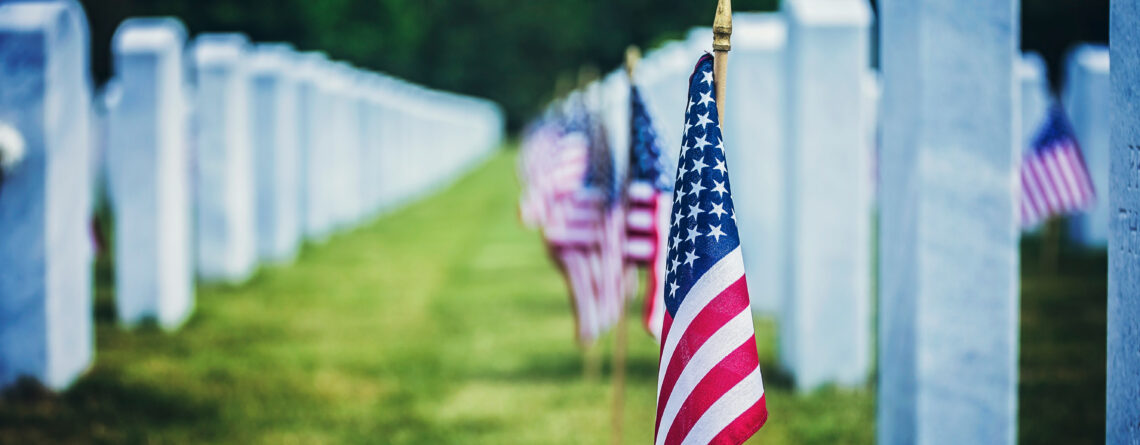Memorial Day and Grief: Healing from Invisible Wounds
The Nystrom & Associates providers consulted for this article on Memorial Day and grief is Rob Booth, LPC, Clinical Military Counselor and United States Air Force veteran.
Memorial Day honors military members who died while serving our country. For many, it means parades, ceremonies, and gatherings. But for those who've lost loved ones, especially military family members, this holiday can bring up difficult feelings. For many families who have experienced the loss of a military loved one, Memorial Day brings a complex mix of emotions that others might not understand.
"Memorial Day is not only a time for remembrance, but also a moment to acknowledge the invisible wounds that loss can leave behind," explains Rob Booth, LPC, Clinical Military Counselor at Nystrom & Associates. "It's okay to feel the ache, the anger, the confusion or nothing at all. Grief has no uniform, no timeline, and no right or wrong shape."
The Many Faces of Grief
Grief looks different for everyone. On Memorial Day, you might feel:
- Deep sadness while others are celebrating
- Pride mixed with heartache
- Numbness or feeling disconnected
- Anger or frustration
- A need to honor your loved one in a special way
These reactions are all normal. Some people find comfort in public ceremonies, while others prefer quiet remembrance. What matters is finding what works for you. Whatever you're feeling this Memorial Day, please know that your emotions are valid and deserve to be honored.
Memorial Day Challenges
Memorial Day can make grief harder in several ways:
Triggers: Patriotic symbols, military ceremonies, and media coverage can bring strong emotions to the surface. Even well-meaning "Happy Memorial Day" greetings might feel painful when you're grieving.
Social Pressure: You might feel expected to participate in events when you're not emotionally ready.
Complicated Feelings: Military losses can involve complex emotions—pride in service alongside grief for the sacrifice.
Coping Strategies That Help
Here are simple ways to take care of yourself during Memorial Day:
Create a personal ritual: Light a candle, visit a special place, or look through photos. Small, meaningful acts can provide comfort.
Set boundaries: It's okay to skip events if they feel too difficult. You can honor your loved one in your own way.
Take breaks: Step away from social media or news coverage if it becomes overwhelming.
Ask for support: Let trusted friends and family know what you need, whether it's company or space.
Finding Support
If grief feels too heavy to bear alone, professional help can make a difference. Consider reaching out if you:
- Feel stuck in your grief for a long time
- Have trouble with daily activities
- Feel hopeless or have thoughts of not wanting to live
Grief counseling provides a safe space to process complex emotions and develop coping skills. At Nystrom, we understand the unique aspects of military-related grief and offer compassionate support.
Remember, healing doesn't mean forgetting. It means finding ways to honor your loved one while moving forward. There's no timeline for this journey, and support is available whenever you need it. Be gentle with yourself this Memorial Day as you navigate both honoring your loved one and caring for your own heart.
Call 1-844-NYSTROM or request an appointment online to get help today!





